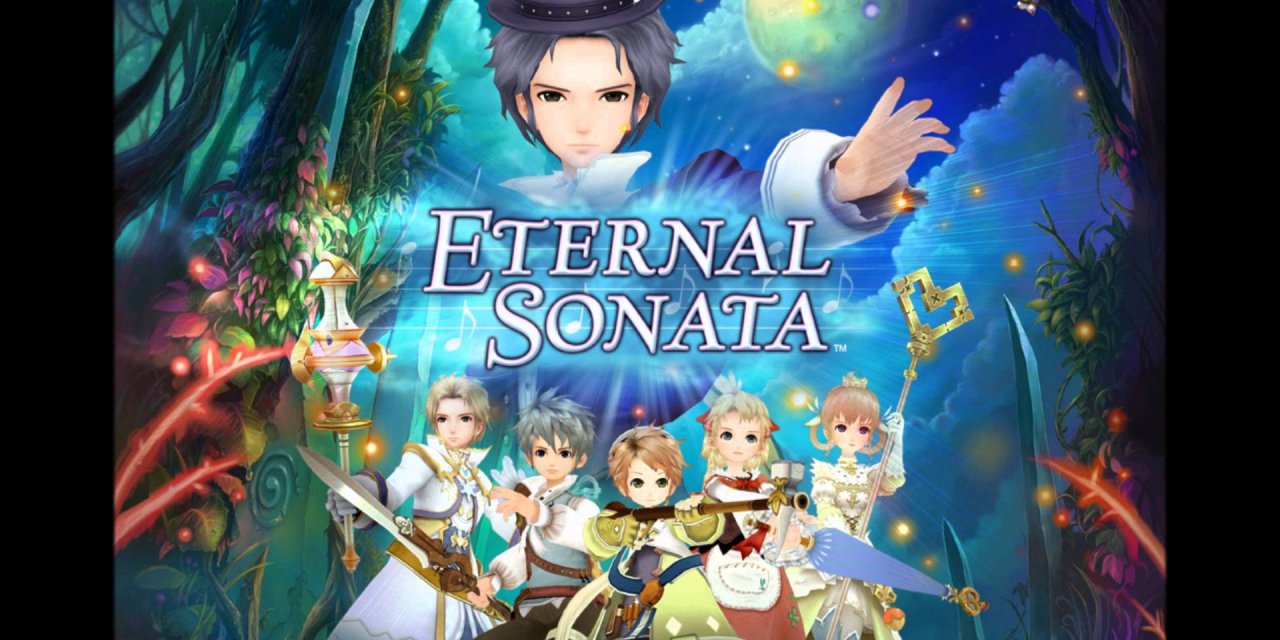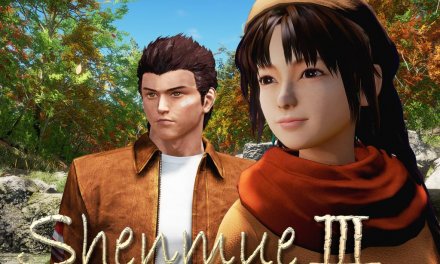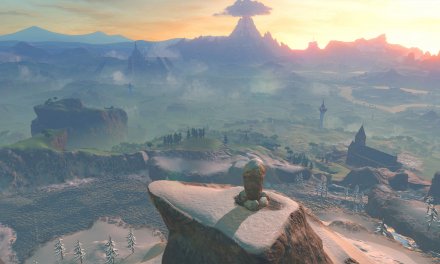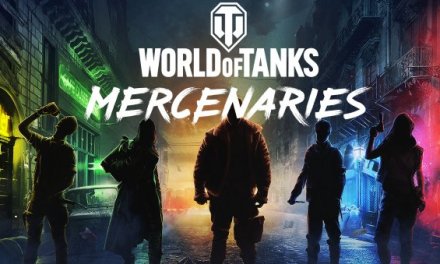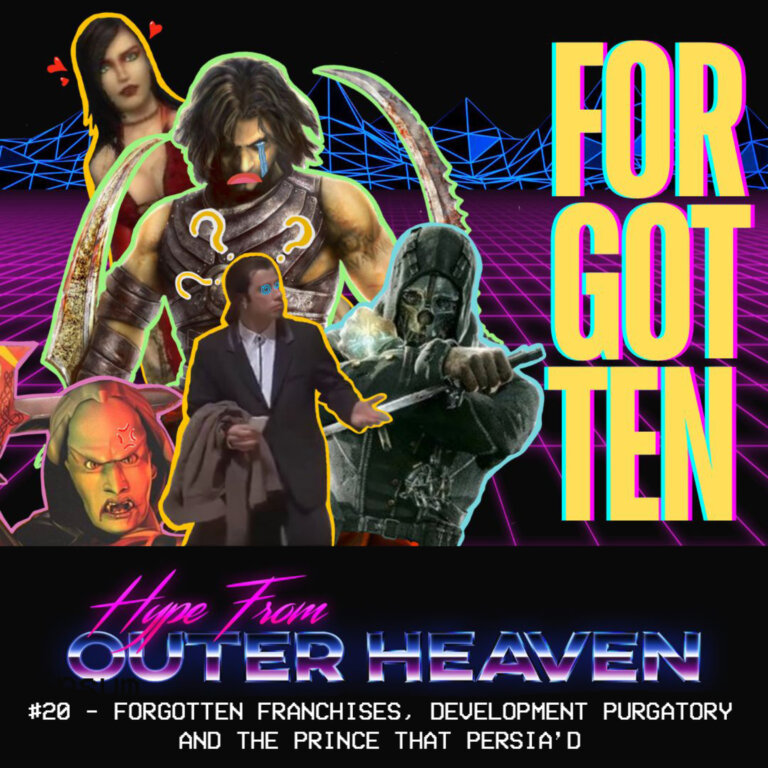‘When a man’s consciousness is fading away he will find without fail that he comes face to face with his own soul and must challenge it.’
One of the most awesome things in life is when you don’t know you wanted something until it eventually comes along. We didn’t know we needed more Batman games and we got the Arkham Series, we all came to terms that Uncharted was capped off in a nice, neat little trilogy until Uncharted 4 came along and melted all our faces off, and you look me in the eye and tell me your life hasn’t changed since they came out with those TV remotes that also doubles as a bottle opener! But what if I was to tell you about a J-RPG centered around the death and music of a classical romantic era composer? Well if you don’t already know, trust me there is one and it’s pretty darn great. Developed by Tri-Crescendo, Eternal Sonata was released in Europe for the Xbox 360 in October of 2007 and eventually made its way to the PS3 in February of 2009, it was probably the only game that called out to me on two different levels upon discovering it in my teen years, not only as an avid J-RPG enthusiast but also as a musician, it pretty much felt like something tailored just for me and anyone like me. With a charmingly vibrant cell shaded look, set in a dream world that combines beautiful hills and valleys, mountainous ranges and snowfields with musical terminology, music that will broaden your horizons and a cast of characters each with their own purpose for why they are on their journey, put alongside with a plot that’s as straightforward as it is whimsical.
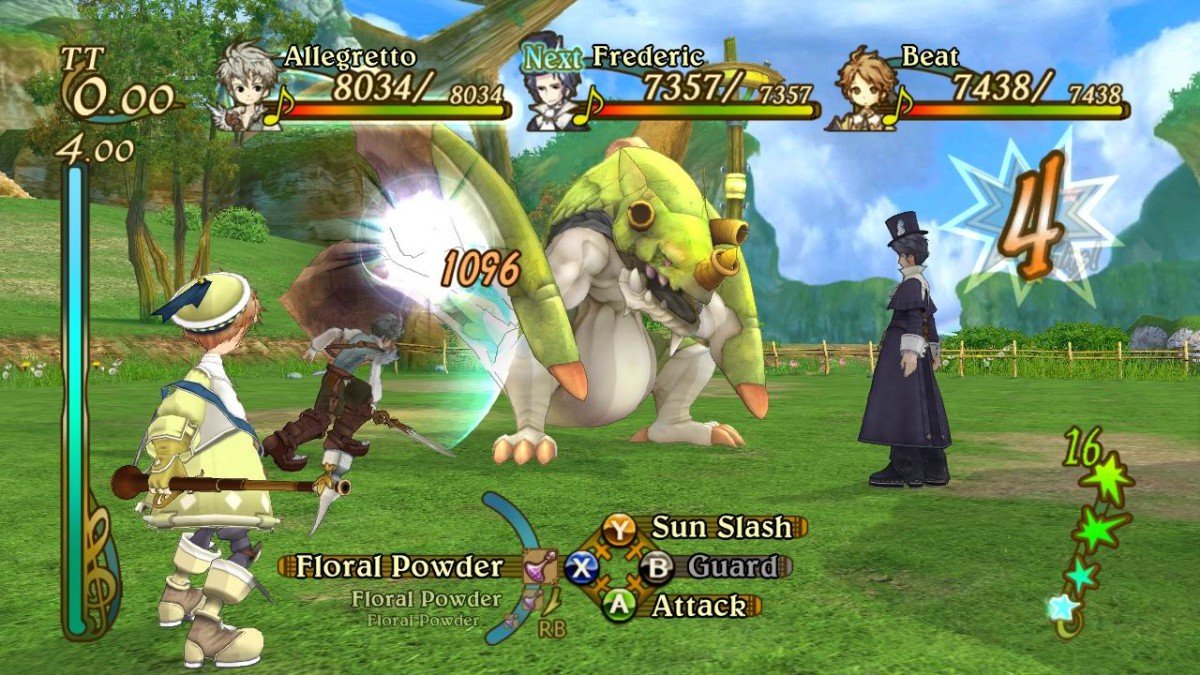
Eternal Sonata seemingly takes place in some sort of fever dream in the head of the 19th Century classical composer Frederic Francois Chopin as he lays on his deathbed. But this, believe it or not, is not the true focal point of this game. Soon he meets a girl named Polka, a girl who can use magic which in this world is a sign that your life will soon come to an end, but is, in fact, a side effect of a multi-purpose substance called Mineral Powder which is the only thing our Antagonist – Count Waltz hasn’t put a large tax on in hopes of creating a magic army in hopes of conquering the neighboring nation of Baroque, leaving the economy in disarray. With this fire in their bellies, Frederic and Polka, make the journey to Forte City to confront Waltz about the cheapness of mineral powder and the rising costs on pretty much anything else. Along the way, they meet young robin hoods – Allegretto and Beat, feisty polarizing twins – March and Salsa, sheep farmer and archer – Viola, members of the resistance known as Andantino – Jazz, Claves, and Falsetto and the Prince of Baroque – Crescendo along with his fiancé – Serenade, all of whom have their own vendetta against the villainous count. Eternal Sonata’s story gives the player a great sense of adventure by taking our characters on a world journey learning more and more about themselves, each other and finding personal growth as well as their corrupt fascist leader while still keeping the plot still relatively easy to follow until you reach the ending which is pretty convoluted and makes little sense, but does throw you a final boss you didn’t see coming.
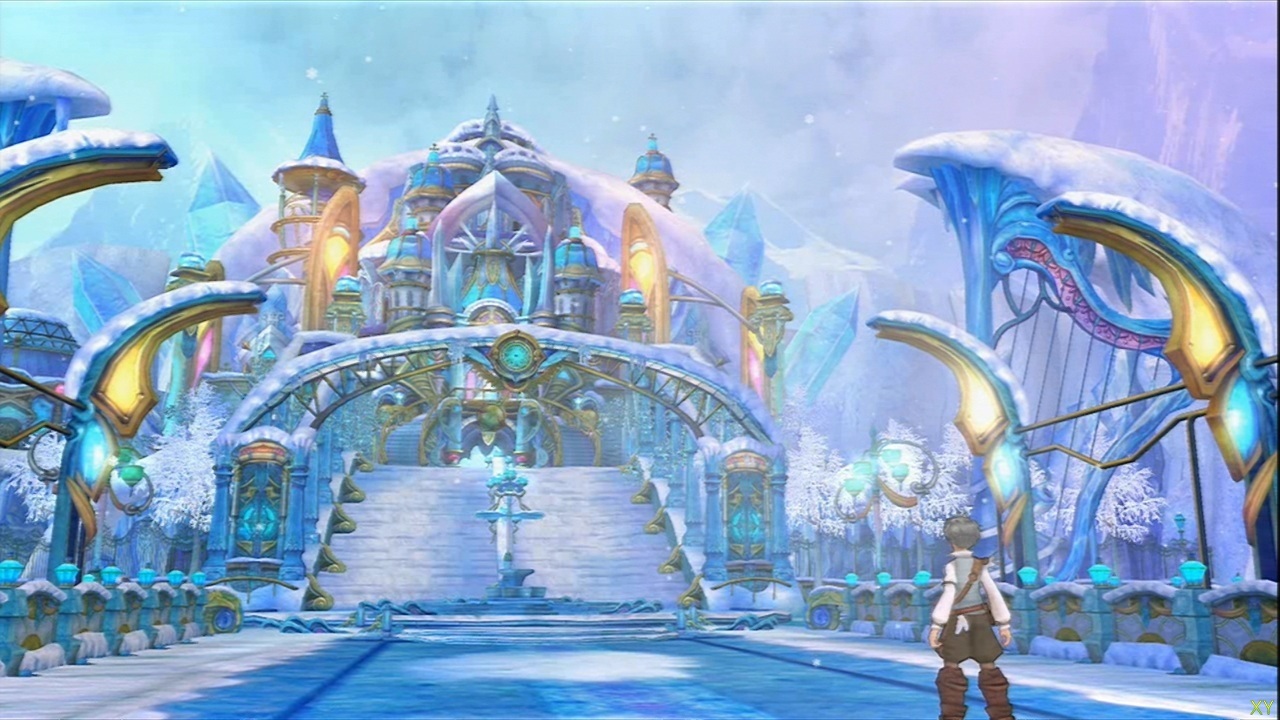
The art style that is showcased in Eternal Sonata is one of the most eye-catching and transcendent in the PlayStation 3 library, the quaint villages and the wonderfully delicate lighting of the Agogo Forest makes the early segments of this title an absolute joy to discover, the Chorus Plains, a beautiful green field that is seemingly gargantuan to traverse and the snow-covered Baroque City is the epitome of the word serene to say the very least. Even the more perilous regions like Mount Rock and Wah Lava Cave create a fantastic contrast that instantly snaps you out of the warm, cosy timbre of this world letting you know that much like every journey, there are tough times awaiting you. However, Eternal Sonata’s over outlook and aesthetic presentation are let down by the character models. Though our characters are unique and are ultimately nice to look at, their rigid, ragdoll-like movements create a sort of negative juxtaposition to the fluidity portrayed by the surroundings.
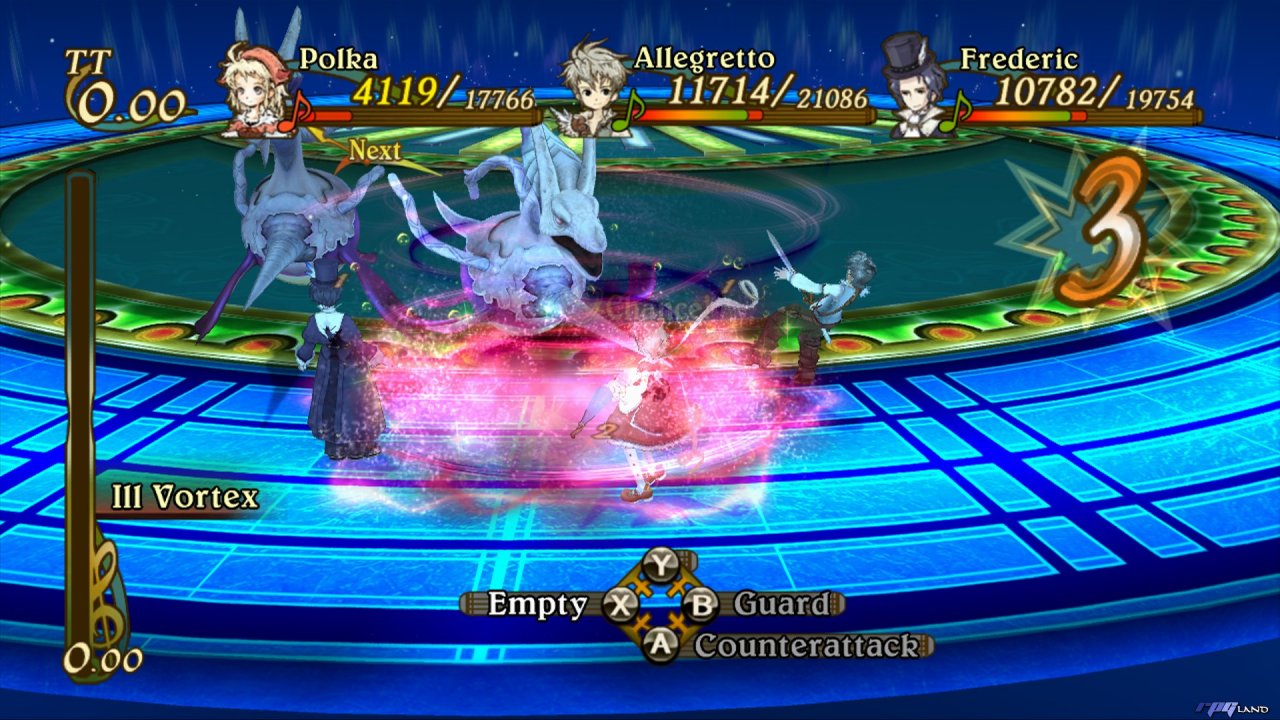
Eternal Sonata’s artistic peak comes in the form of its music. Composed by Motoi Sakuraba who is also known for his musical contributions to the Star Ocean series as well as the Dark Souls franchise, has gone onto to create a tour de force of video game composition here, with a score bursting with eccentric piano work and epic strings and creates a high point that follows you for the entire game. And with some of Chopin’s work placed in at certain points creates a strikingly real dynamic, all while still keeping traditional J-RPG elements present within the mix.
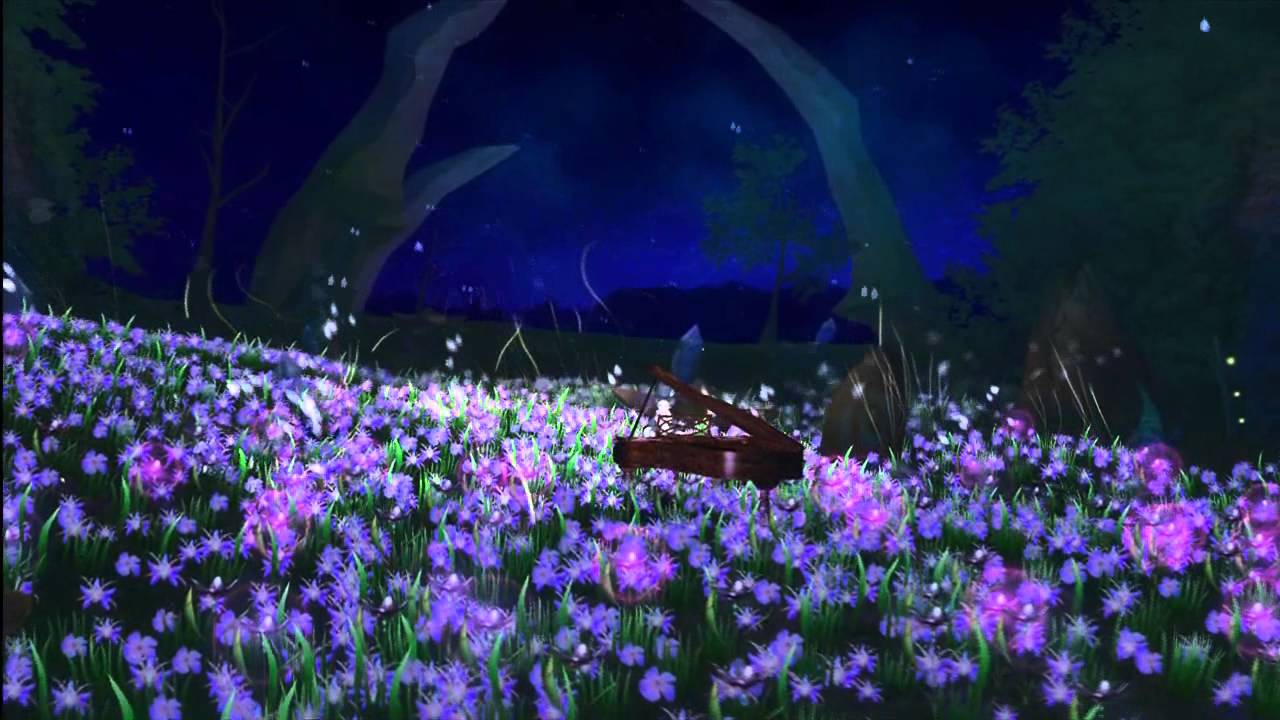
Eternal Sonata stands apart from other J-RPGs because of its unprecedented combat system. In this game, your surroundings in battle have never been more crucial, as your attacks differ depending on if the character you’re controlling is in the sun or in shade or in the daytime or night, this goes for your opponents also with their forms changing depending on these circumstances becoming stronger, weaker or more resistant to certain attacks in the process. Eternal Sonata also introduces Tactical Time, a mechanic that gives you a time limit to complete whatever actions you want your controllable character to achieve, be it get into a certain position for the next turn or wreak havoc on your foe, providing a further strategic edge. From the 2nd chapter, you have access to echoes which are damage multipliers for your special attacks and are accumulated by all members of your team during each fight, and though each skirmish consists mostly of button mashing, some characters possess their own little quirks, with Jazz being your hard hitter dealing heavy damage using a long blade giving considerable range, Beat – your long-range shooter and can take photographs (?) to sell later on, Falsetto – your quick striker, Polka – your healer (and can also whack people with an umbrella…) and Viola – Your archer/healer to name just a few. You’ll also face bosses both story and optional that will provide such a steady trial throughout your journey, some with devastating attacks and gargantuan amounts of HP that adds gravity to each one you face, the statistics being presented in such large numbers is a good way to give battles a more impactful feel and many RPGs utilize this to the same effect and it works well here. There are also a few side quests to undertake, such as trading items with other NPC’s and finding score pieces that when played with others found gives you helpful items.You will also pass through some outstanding and precarious dungeons that not only house some formidable adversaries but puzzles that will make you scratch your head raw, with the maze-like stronghold Fort Fermata and the atmospheric Xylophone Tower being just two places that will both challenge and frustrate you.
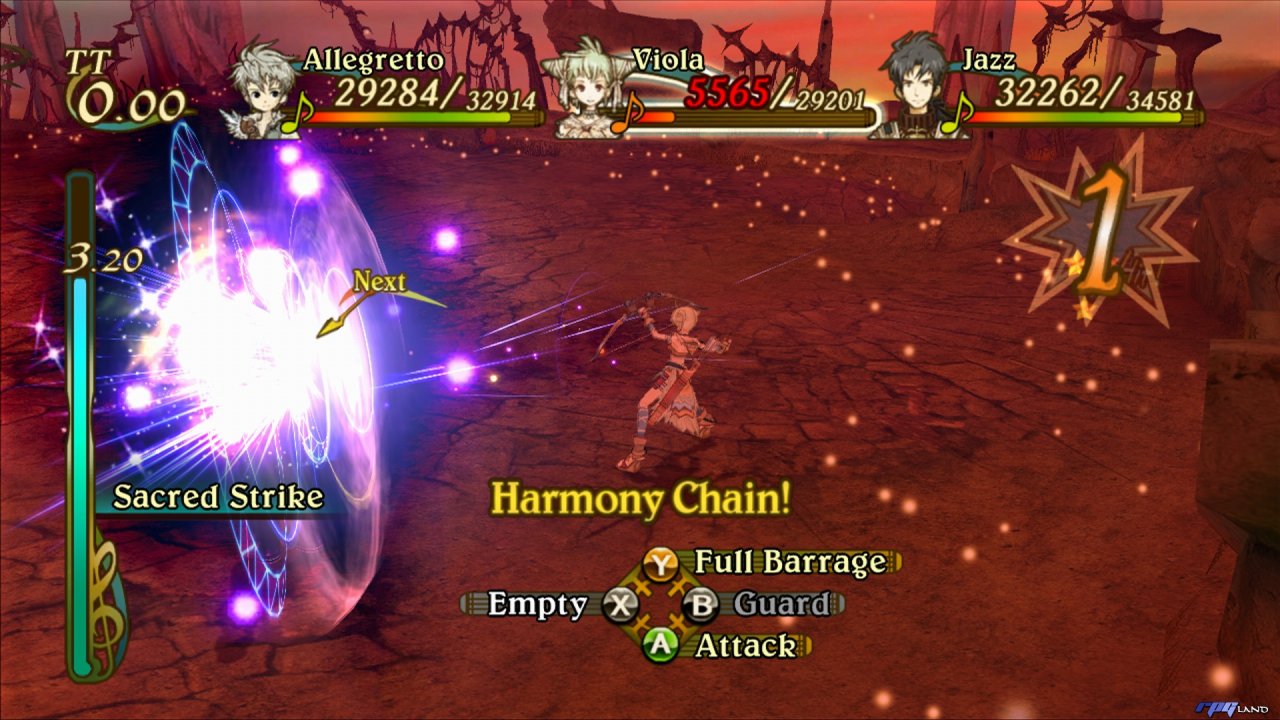
In conclusion, Eternal Sonata is a massive diamond in the rough, a hidden treasure in the annals of the PlayStation 3 library. Over the past 10 years, the game has garnered quite a cult following, leaving some to wonder why a sequel or even a series wasn’t produced, due to the positive critical reception that the game achieved. In mine and many others opinion, the game itself wrapped everything up in its conclusion, although as I mentioned the ending wasn’t the games strong point but it left no questions (other than what the hell just happened?) to what was going to happen down in the line in this lore. If anything, this game deserves a remaster, so gamers who may have missed their opportunity to experience this unsung hero another chance.

